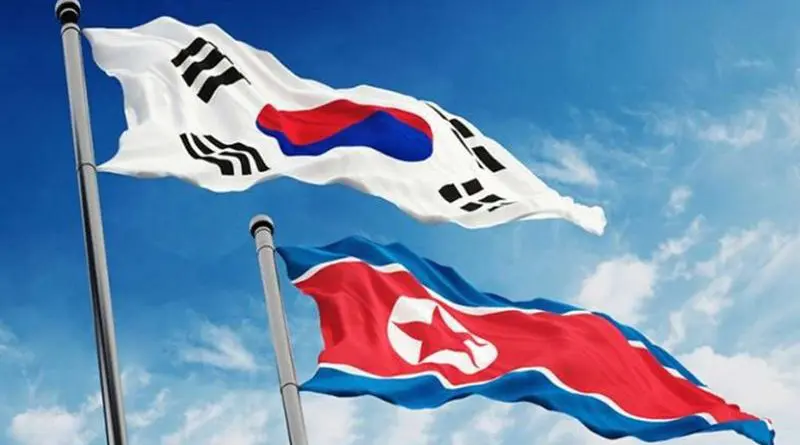From Sunshine To Complexities: The 2018 Inter-Korean Dialogue And A New Model For Peace On The Peninsula – OpEd
In 2018 diplomatic engagements and agreements improved relations between North and South Korea. The goals of these initiatives were reducing military tensions promoting collaboration and fostering peace on the Korean Peninsula. However, challenges arose due to the partnership between Russia and North Korea posing new threats to regional stability. In a complex context, Indonesia’s pragmatic foreign policy could potentially provide a model for managing the crisis on the Korean Peninsula.
The inter-Korean dialogue in 2018 achieved significant milestones. One accomplishment was the reduction of military tensions. Both Koreas agreed on measures such as removing border guard posts, establishing a no-fly zone, and ceasing military drills that targeted each other. These steps aimed to build trust and minimize the risk of accidental military confrontations. Additionally, the dialogue led to the participation of both Koreas in international events, particularly the Winter Olympics in Pyeongchang. During the Olympics, athletes from North and South Korea marched together under a unified flag, highlighting the potential for reconciliation and unity. The talks also resulted in discussions on economic cooperation projects, such as the restoration of rail and road links that had been severed since the Korean War. Another crucial aspect of the dialogue was the issue of family reunification. Facilitating meetings between divided families was a humanitarian gesture that instilled hope in many affected families, despite the limited scope of these efforts.
Despite these accomplishments, the 2018 inter-Korean dialogue faced significant challenges, such as North Korea’s ongoing development of its nuclear weapons program. While the dialogue aimed to reduce military tensions, it did not yield tangible steps towards denuclearization. North Korea’s inconsistent adherence to agreements and periodic missile tests further destabilized the situation. The geopolitical landscape was also complex, with relations between the United States, Japan, and other regional powers influencing the progress of inter-Korean talks. Sanctions imposed on North Korea restricted economic cooperation and limited the potential for broader engagement.
The growing partnership between Russia and North Korea added further complexity, encompassing economic, military, and diplomatic dimensions. Russia’s support for North Korea could undermine international efforts to pressure Pyongyang into abandoning its nuclear ambitions. Moreover, military and economic assistance from Russia could embolden North Korea, making it less willing to participate in genuine denuclearization discussions. Additionally, the Russian-North Korean partnership heightened regional tensions and complicated the strategic considerations of stakeholders, including South Korea and the United States. The presence of a supportive ally like Russia might prompt North Korea to adopt a more rigid stance, further destabilizing the region.
Given these challenges, a new approach is needed to address the issues on the Korean Peninsula. Indonesia’s pragmatic foreign policy, which emphasizes non-regional interference, diplomacy, and humanitarian efforts, presents a promising framework for engagement. Indonesia’s principle of non-interference and respect for sovereignty positions it as a neutral facilitator for dialogue between North and South Korea.
As a member of ASEAN with a history of promoting regional stability through dialogue, Indonesia can utilize its diplomatic channels and mediate between the two Koreas. By leveraging ASEAN frameworks, Indonesia can encourage regional dialogue aimed at reducing tensions and fostering collaboration. Indonesia’s emphasis on humanitarian aid and disaster relief aligns well with the needs of the Korean Peninsula. Providing humanitarian assistance to North Korea in areas such as health, education, and food security can help establish goodwill and build trust.
Additionally, promoting people-to-people interactions through cultural, educational, and sports exchanges can contribute to reducing hostilities and fostering mutual understanding. Economic cooperation is another area where Indonesia’s approach can be beneficial. By initiating joint projects involving both Korea and ASEAN countries, Indonesia can create a web of interdependence that promotes stability. Furthermore, Indonesia’s experience in capacity building and sustainable development can be utilized to provide training programs for North Korean officials in governance and economic management.
To conclude, despite the achievements of the 2018 inter-dialogue on Korea, there are ongoing challenges in attaining lasting peace and stability on the Korean Peninsula. The evolving partnership between Russia and North Korea further complicates the situation, underscoring the need for a new model of engagement. Indonesia’s pragmatic foreign policy, which prioritizes non-regional interference, diplomacy, and humanitarian efforts, presents a balanced approach. By promoting dialogue, trust-building, and economic cooperation, Indonesia can contribute to a more stable and peaceful Korean Peninsula. This sets an example of constructive engagement in complex geopolitical landscapes, demonstrating how pragmatic and grounded policies can effectively address international issues.
The opinions expressed in this article are the author’s own.
References
- Weatherbee, D. E.. International Relations in Southeast Asia: The Struggle for Autonomy. Rowman & Littlefield, 2013.
- Vatikiotis, M.. Indonesian Politics Under Suharto: Order, Development and Pressure for Change. Routledge, 1993.
- Acharya, A.. Constructing a Security Community in Southeast Asia: ASEAN and the Problem of Regional Order. Routledge, 2014.

